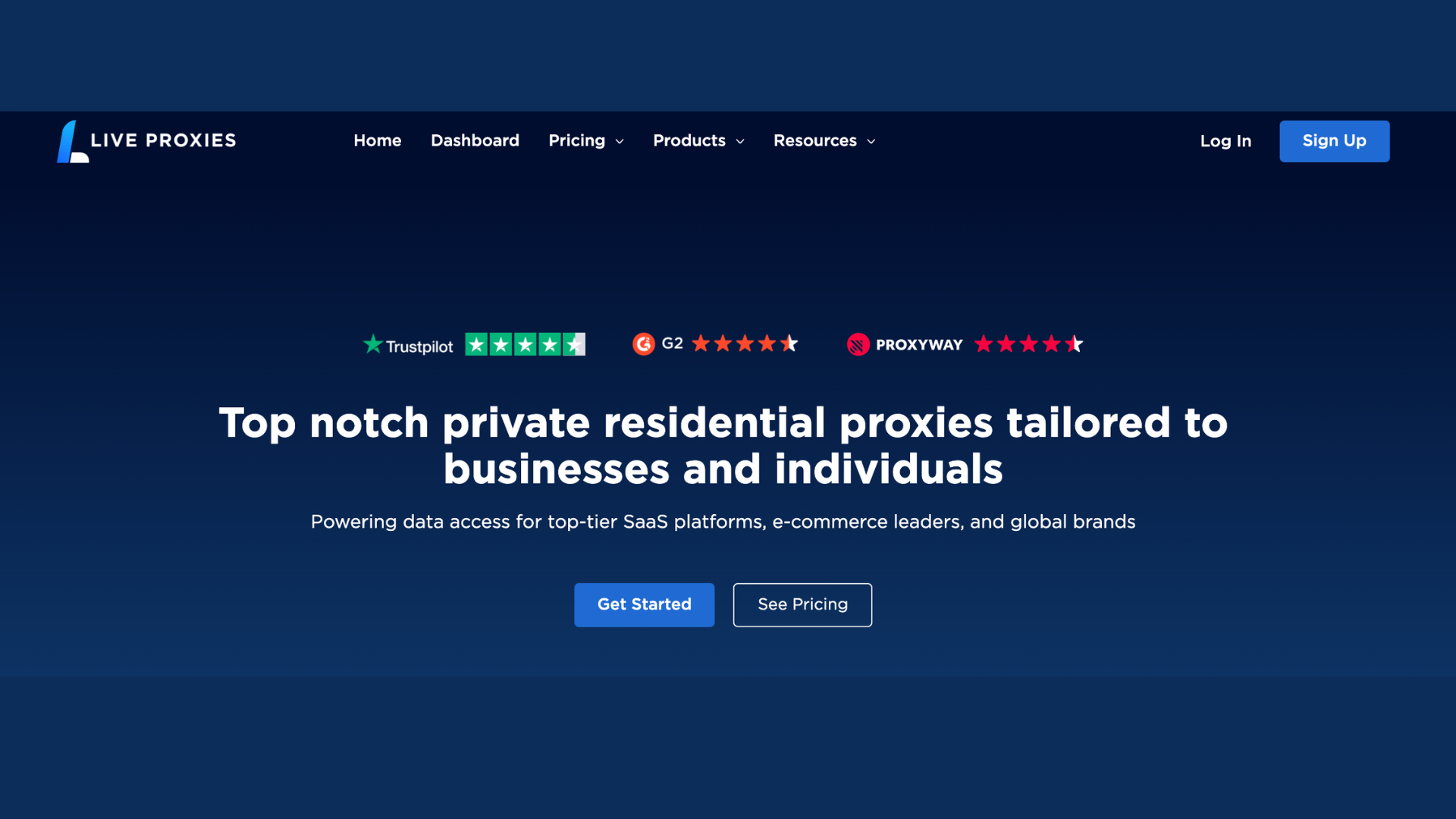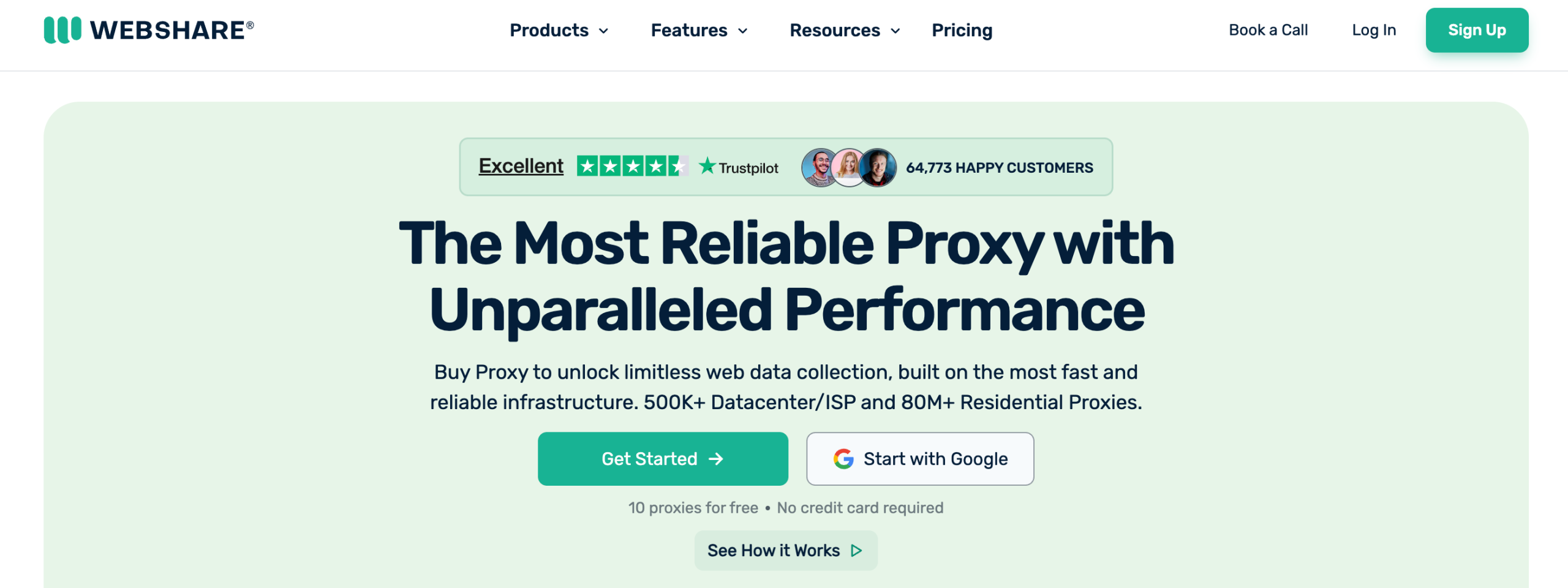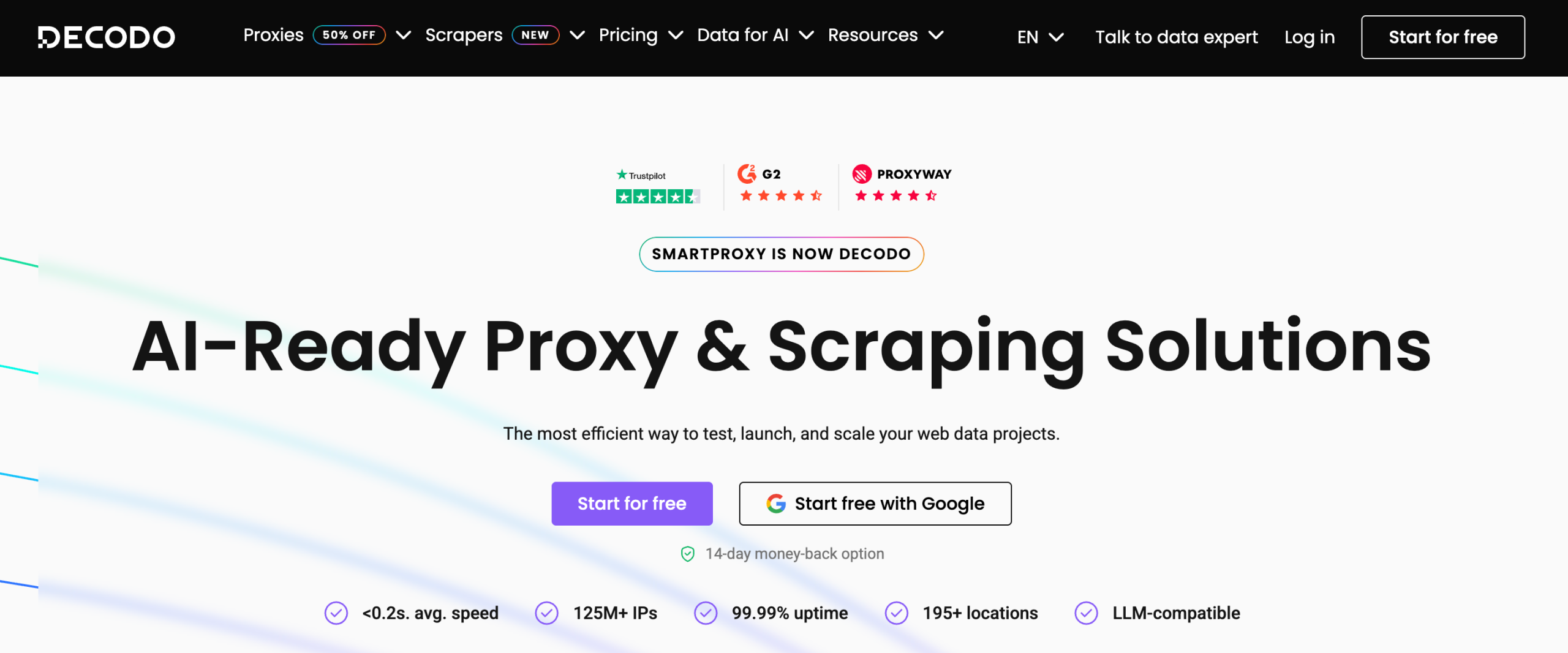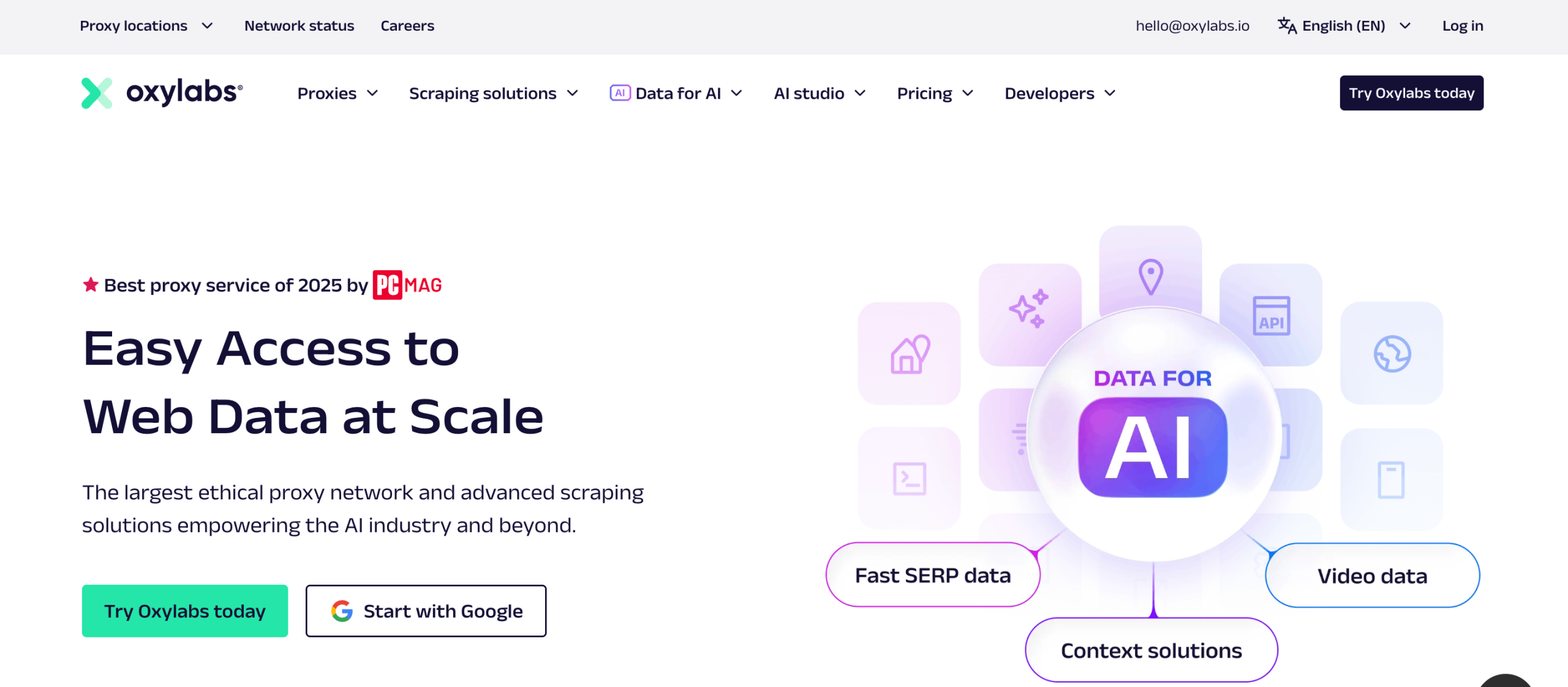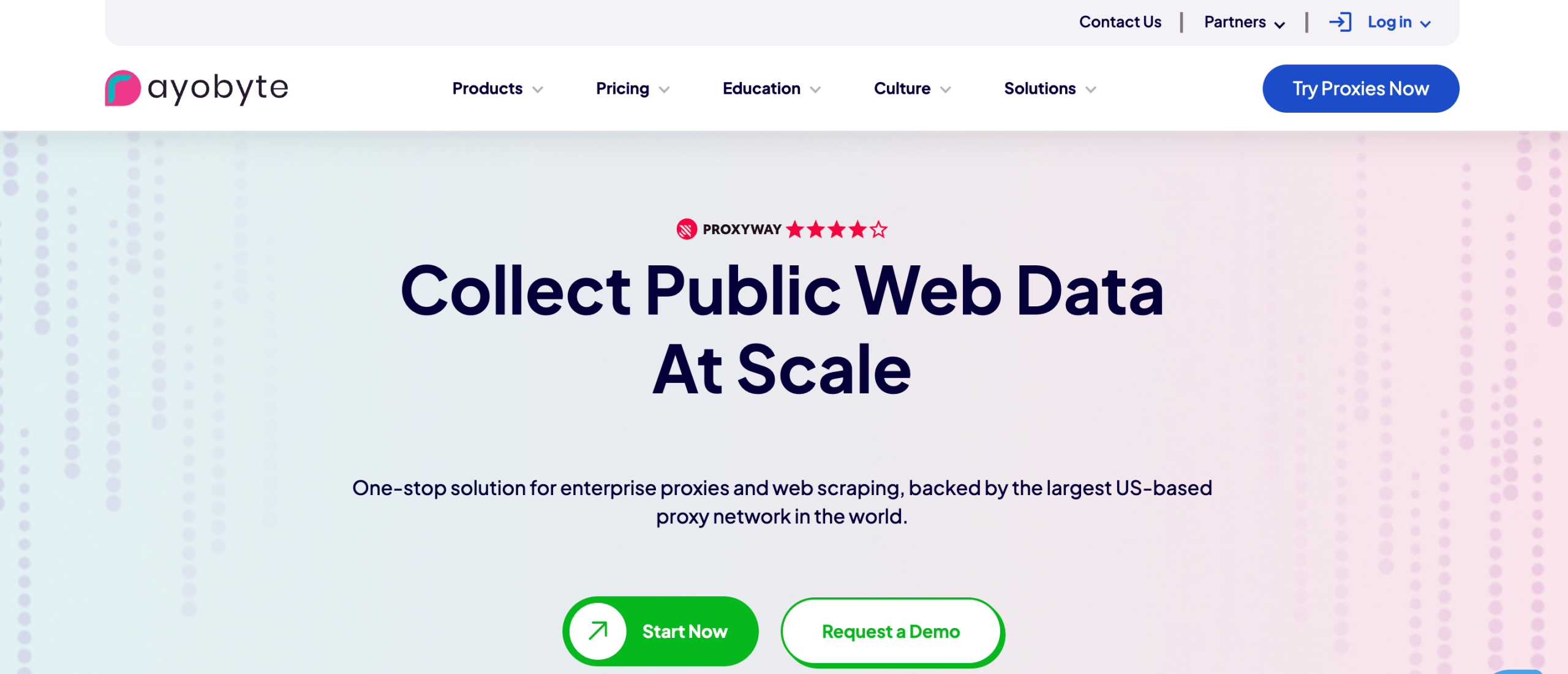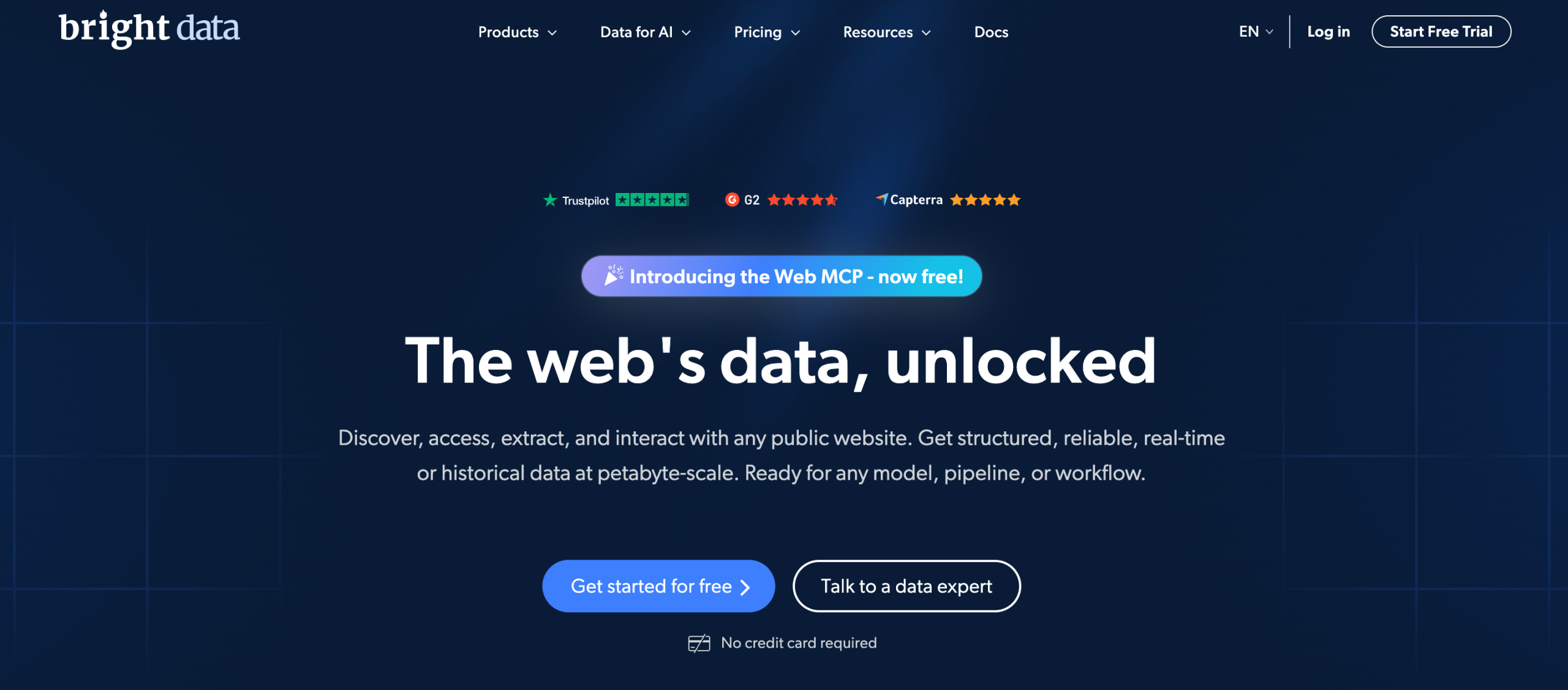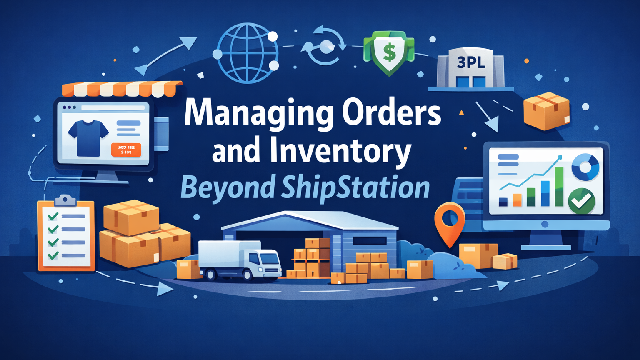6 Best Private Proxy Services in 2025
As organizations grow their processes around data-led automation, SEO monitoring, and e-commerce analysis, the use of private proxies is skyrocketing.
Having secure and consistent access to web resources is becoming an essential requirement for accuracy and compliance supporting larger scale operations.
According to DataIntelo's report, the global proxy service and software sector was valued at USD 1.56 billion in 2023 and is projected to reach USD 3.12 billion by 2032, growing at a compound annual rate of about 8.1 %.
This growth reflects a global shift toward privacy-first infrastructure, where reliable proxy providers define the balance between scalability, performance, and regulatory trust.
What Is a Private Proxy?
A private proxy refers to a unique IP address that is dedicated to one consumer uniquely. Private proxies ensure consistent speeds, can operate at high speeds, and offer complete dominion over usage and performance.
Most private proxies are part of data center networks, which provide a granular experience of high bandwidth and uptime without the cost.
A more advanced form is the static residential (ISP) proxy. A standard proxy can provide a great experience.
Static residential proxies differ in that the data center IPs are registered to residential autonomous systems (ASNs).
The data center registration provides the reliability of using a data center proxy, while the residential ASN provides the authenticity of a residential proxy.
Static residential proxies are difficult to detect and mitigate a critical or geo-sensitive resource because they afford an acceptable mixture of speed, legitimacy, and reliability in the best operational combination.
What Are the Advantages and Disadvantages of Private Proxies?
Private proxies offer exclusive IP ownership for a single user, ensuring higher speed, reliability, and control over web sessions. However, their limited diversity and higher cost can reduce flexibility for large-scale or distributed scraping projects.
Advantages
Private proxies are favored for stability, reliability, and reduced risk of IP bans, making them ideal for projects where precision and uptime matter most.
- Exclusive access: Only one user per IP, reducing the risk of blacklisting and cross-tenant interference.
- High performance: Lower latency and faster connections compared to shared proxies.
- Stable reputation: IPs maintain a clean history, suitable for sensitive platforms like Shopify or Google.
Disadvantages
Despite their strengths, private proxies can face challenges in anonymity, scalability, and affordability for smaller teams.
- Limited anonymity: Since IPs often come from datacenters, detection risk is higher than with residential proxies.
- Higher cost: Dedicated allocation and maintenance raise pricing compared to shared or rotating pools.
- Reduced scalability: Fixed IPs lack the automatic rotation needed for continuous scraping.
When to Use Private Proxies?
A private proxy is a dedicated IP address used by one customer only, ensuring stability, speed, and full control.
It’s ideal for account management, SEO, e-commerce monitoring, and automated QA, where consistent access and a clean reputation prevent bans or detection.
Most private proxies come from datacenter networks for high performance, while ISP proxies register under residential ASNs, offering datacenter reliability with residential authenticity for stricter sites.
A clear set of scenarios aligns the choice with real needs.
1. Account and session workflows: A private IP keeps long-lived logins stable and repeatable.
2. Email security and account protection: Using a private proxy for email security ensures your email accounts connect from a consistent, unique IP, helping prevent blocks, suspicious activity flags, or unauthorized access.
3. SEO and rank tracking: A fixed identity reduces challenges and supports scheduled queries.
4. Brand and MAP monitoring: A dedicated address checks pages and prices on a predictable cadence.
5. Ad verification and geo QA: A city-targeted IP validates creative and localized content.
6. Enterprise data collection with SLAs: A single-tenant pool supports controlled concurrency during peak windows.
7. Internal tooling and QA pipelines: CI agents authenticate by an allowlist for clear access control.
8. Lightly guarded e-commerce scraping: Datacenter private IPs deliver throughput for catalog sweeps, while ISP proxies in e-commerce provide residential IPs that help maintain authenticity and reduce the risk of blocks.
A short contrast clarifies alternatives. Strict anti-bot targets often favor ISP or mobile endpoints. Massive breadth with frequent identity changes may fit shared residential rotation, with private IPs reserved for login steps.
What Are the Top Private Proxy Services in 2025?
Private proxy providers differentiate themselves in speed, reliability, and network variety in 2025.
The best solutions provide dedicated IP access and flexible management, offer customers transparent pricing structures, and cover enterprise-scale usage as well as workers and individual professionals.
Here is a brief discussion of the best proxy services that set the bar for performance and control in the proxy market:
- Live Proxies: Live Proxies offers static residential and rotating mobile public IPs for identity-critical and high-security use cases.
- Webshare: Provides customizable private IPs with easy self-service setup and performance add-ons.
- Decodo (Smartproxy): Combines strong ISP coverage, fair pricing, and scalable concurrency.
- Oxylabs: Delivers one of the largest datacenter networks with enterprise-grade automation.
- Rayobyte: Features provider-owned hardware and diverse ASNs for reliable long-term use.
Comparison of the Best Private Proxy Providers in 2025
Private proxy solutions in 2025 differ widely in structure, performance, and management flexibility. Some focus on datacenter scale and automation, while others emphasize residential authenticity or customizable self-service control.
Understanding these distinctions is essential for matching technical needs with operational goals. The comparison below summarizes the top private proxy providers, outlining their main strengths, proxy types, and ideal applications.
| Provider | Proxy Types | Core Advantages | Ideal Use Cases |
| Live Proxies | Static Residential, Mobile | Stable static residential IPs and rotating mobile coverage for sensitive, identity-bound operations. | Account automation, ad verification, geo-targeted QA, and traffic quality testing. |
| Webshare | Datacenter, ISP | Customizable, low-cost setup with modular add-ons and strong uptime. | Mid-scale scraping, QA testing, and scalable pilot deployments. |
| Decodo (Smartproxy) | Datacenter, Residential, ISP, Mobile | Broad global coverage, ISP-grade stability, and a user-friendly dashboard with automation options. | Mixed DC + ISP scraping, social media, and marketing analytics at scale. |
| Oxylabs | Datacenter, Dedicated Datacenter, Residential, ISP, Mobile | Extensive global network with enterprise-grade automation tools. | High-volume scraping, data aggregation, and orchestration. |
| Rayobyte | Residential, Static ISP, Rotating ISP, Static Datacenter, Rotating Datacenter, Mobile | Owned infrastructure with diverse ASNs and consistent uptime. | Long-term data collection and reliability-focused operations. |
| Bright Data | Datacenter, Residential, ISP, Mobile | Enterprise-level control, precise geo-targeting, and performance scaling. | Complex data stacks and analytics-heavy environments. |
1. Live Proxies
Live Proxies provides a static, mobile, and rotating proxy pool optimized for scraping and analytics at scale. The network spans many countries and supports long sessions for tasks that rely on identity persistence and geographic accuracy.
It remains a dependable infrastructure for professionals who buy a private proxy to support consistent data workflows with strong uptime and clean IP ranges.
Key Features
- Infrastructure Scale: Large residential, static, and mobile pools designed for durable sessions.
- Protocol Support: HTTP(S) and SOCKS5 ensure compatibility with browsers and automation tools.
- Session Control: Sticky and rotating modes are adjustable for long or short cycles.
- Monitoring: Real-time dashboard tracks bandwidth, sessions, and performance.
- Security: Encrypted gateways and private ranges maintain confidentiality.
Pros
- Speed: Stable throughput under heavy parallel workloads.
- Privacy: Isolated IP allocations reduce shared-reputation risks.
- Scalability: Suitable for large, continuous data collection.
Cons
- Trial Access: Free testing windows and bandwidth remain limited (available for enterprise plans only).
Designed for reliability, Live Proxies supports uninterrupted access across static and mobile environments. The service suits complex workflows that depend on long sessions and accurate geo placement.
2. Webshare
Webshare emphasizes modularity and rapid provisioning through a clean self-service dashboard. The provider blends datacenter and ISP options for consistent results across regions.
Key Features
- Network Reach: Datacenter coverage across many countries with ISP availability in selected regions.
- Protocol Support: HTTP and SOCKS5 integration across common clients.
- Performance Options: Paid tiers unlock unlimited bandwidth and high concurrency.
- Management Tools: On-demand IP refresh, built-in rotator, sub-user controls.
- Support: Email and live chat available during extended hours.
- Free Tier: Small bundle of datacenter proxies available for tests.
Pros
- Ease of Use: Fast setup without tickets.
- Budget Control: Add-ons align to concurrency and replacement needs.
- Reliability: Consistent performance for mid-scale pipelines.
Cons
- Support Availability: Live help is limited outside active hours.
Thanks to modular pricing and instant setup, Webshare adapts well to agile delivery cycles. The platform enables testing, expansion, and refinement without overcommitment.
3. Decodo (Smartproxy)
Decodo combines a simple dashboard with useful ISP breadth and clear fair-use threading. It works well for teams that need steady throughput and predictable management.
Key Features
- Coverage: US datacenter options and ISP proxies in 15+ regions.
- Concurrency: Unlimited threads within the fair-use policy.
- Automation: REST API and monthly refresh keep lists healthy.
- Support: 24/7 chat and email with short response times.
- Integration: Works with headless browsers and popular scraping libraries.
Pros
- Balance: Reasonable pricing with dependable ISP variety.
- Scalability: Smooth path from pilots to stable production.
- Simplicity: Straightforward onboarding and UX.
Cons
- Geo Scope: Datacenter selection is primarily US-based.
With steady throughput and clear tools, Decodo offers a practical balance of usability and range. It remains a dependable choice for data operations that value clarity and consistent results.
4. Oxylabs
Oxylabs targets large programs with a broad datacenter footprint and orchestration-ready tooling. The network favors high-volume scraping and complex monitoring pipelines.
Key Features
- Scale: Very large private datacenter pool across many locations.
- Technology: AI-assisted unblocking optimizes headers and routing.
- Protocol Support: HTTP(S) and SOCKS5 across major proxy types.
- Compliance: Certified infrastructure and policy-aligned data handling.
- Automation: Smart retries and load balancing sustain uptime.
- Enterprise Care: Dedicated account support for complex rollouts.
Pros
- Coverage: Wide distribution lowers clustered bans.
- Performance: High success under elevated thread counts.
- Tooling Depth: Orchestration features simplify operations.
Cons
- Price Range: Strongest value appears at mid to enterprise scale.
Recognized for technical maturity, Oxylabs suits organizations that require scale, compliance, and consistent global reach. The platform supports advanced automation and high-throughput collection.
5. Rayobyte
Rayobyte builds on provider-owned infrastructure and multiple ASNs to deliver transparent control and predictable uptime. This positioning suits long-running data operations.
Key Features
- Ownership: Self-operated hardware and IP subnets.
- ASN Diversity: Multiple networks reduce correlation and mass blocking.
- Maintenance: Monthly refresh with manual IP swap capability.
- Protocol Support: HTTP and SOCKS5 for varied client stacks.
- Reliability: Constructed for continuous, long-session jobs.
Pros
- Stability: Reliable under extended schedules.
- Variety: ASN distribution improves pool reputation.
- Operational Control: Targeted replacements without full resets.
Cons
- Geo Reach: Country availability and rates may vary.
Built around ownership and control, Rayobyte appeals to teams that value transparency and long-term stability. The mix of ASN diversity and predictable maintenance supports steady results.
6. Bright Data
Bright Data addresses enterprise needs for fine control and observability. The network spans datacenter, ISP, residential, and mobile resources with a dedicated proxy manager for precision routing.
Key Features
- Network Size: Large ecosystem across residential, ISP, mobile, and datacenter.
- Manager Platform: Rotation rules, routing logic, session persistence.
- Security: Transparent sourcing with documented compliance.
- Precision: City-level targeting for localized checks and ad QA.
- Tooling: Detailed dashboards and comprehensive API documentation.
- Support: Global assistance available around the clock.
Pros
- Customization: Deep configuration for technical teams.
- Scale: Handles intensive programs without sacrificing performance.
- Geo Accuracy: Fine targeting for complex campaigns.
Cons
- Complexity: Advanced features require setup time.
For enterprise environments, Bright Data blends control, visibility, and scale. Detailed targeting and management depth fit organizations with strict compliance and analytics demands.
Are Free “Private” Proxies Safe?
Free “private” proxies are not safe for production use because they often expose users to data theft, malware, and unreliable performance. Most are shared or compromised IPs disguised as private ones, which can intercept or alter traffic.
They also suffer from frequent downtime, unstable ownership, and public blacklisting, making them unsuitable for automation or data workflows.
In practice, free proxies trade security and stability for zero cost, creating far greater risks than benefits.
How to Select the Right Private Proxy Provider?
Selecting the right private proxy provider requires aligning network coverage, proxy type, and performance metrics with the intended use case.
The most effective choice balances IP diversity, automation tools, compliance transparency, and cost efficiency to ensure scalability, reliability, and security across operations.
- Network Coverage: Confirm the number of active IPs, countries, and ASN diversity to match the target geography.
- Proxy Type Mix: Balance datacenter speed with residential or ISP authenticity, depending on target restrictions.
- Performance Metrics: Review success rates, median bandwidth, and latency under concurrent sessions.
- Access Controls: Prefer allowlist authentication and role-based sub-user management for secure workflows.
- Automation Tools: Look for API integration, rotator configuration, and dashboard telemetry to simplify scaling.
- Compliance and Transparency: Ensure the provider lists sourcing standards, data policies, and audit certifications.
- Support and SLAs: Evaluate responsiveness and uptime guarantees for long-running operations.
- Cost Model: Compare per-IP and bandwidth-based pricing to align with data volume and concurrency demands.
Selecting based on these criteria ensures that proxy performance, compliance, and budget remain aligned with project scale and risk tolerance.
Conclusion
Private proxies remain the foundation for secure, consistent, and identity-controlled access in automation and data workflows. They ensure predictable performance, low latency, and stable IP reputation, key factors for SEO, e-commerce, and enterprise data collection.
As detection systems become stricter, hybrid models like ISP and mobile proxies gain importance for maintaining authenticity without sacrificing speed.
In 2025, Live Proxies sets the benchmark with static residential and mobile coverage, while Webshare, Decodo, Oxylabs, Rayobyte, and Bright Data diversify the market with different strengths, from modular self-service to enterprise-grade orchestration and infrastructure ownership.
Together, these providers reflect a mature ecosystem focused on transparency, scalability, and operational control.

